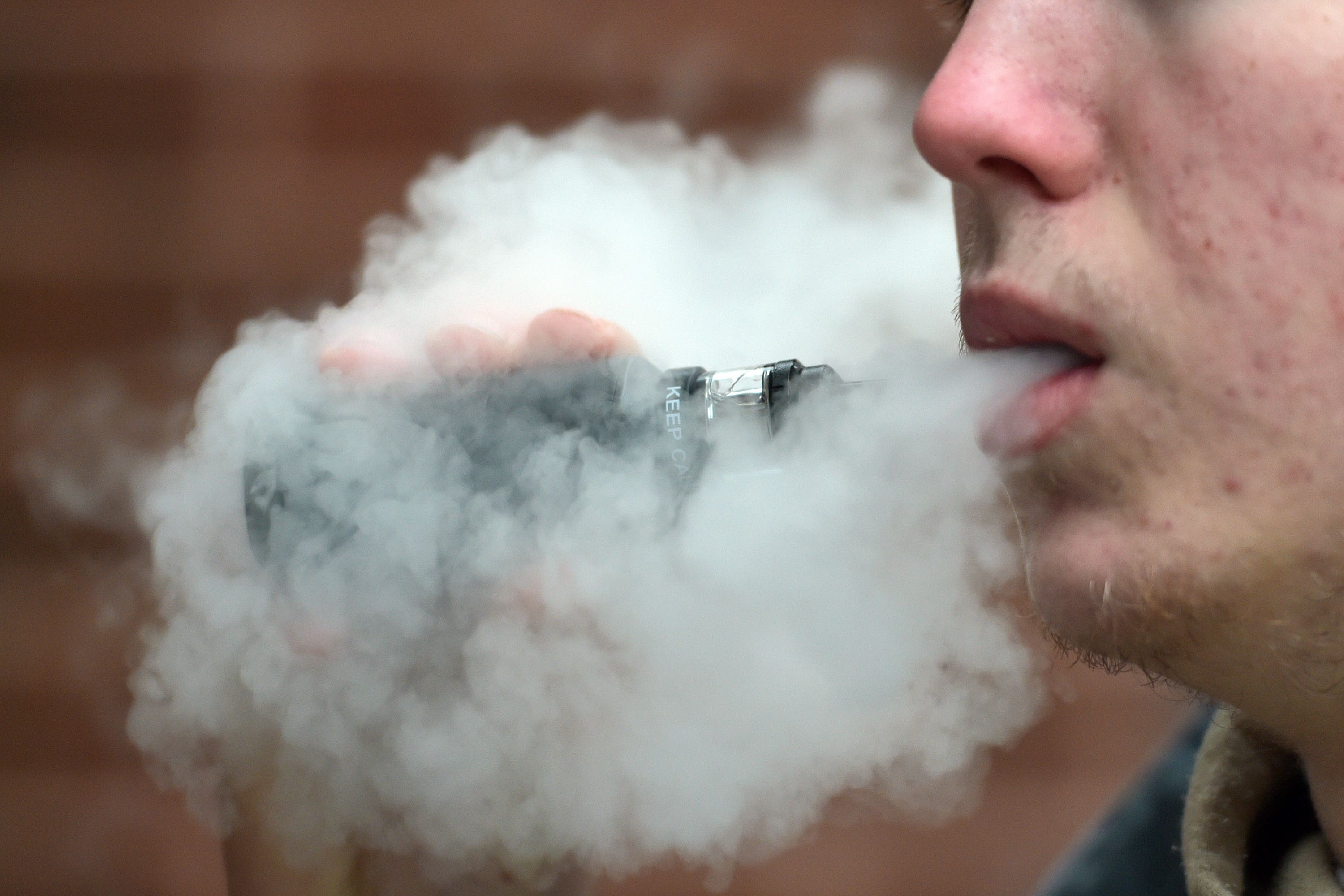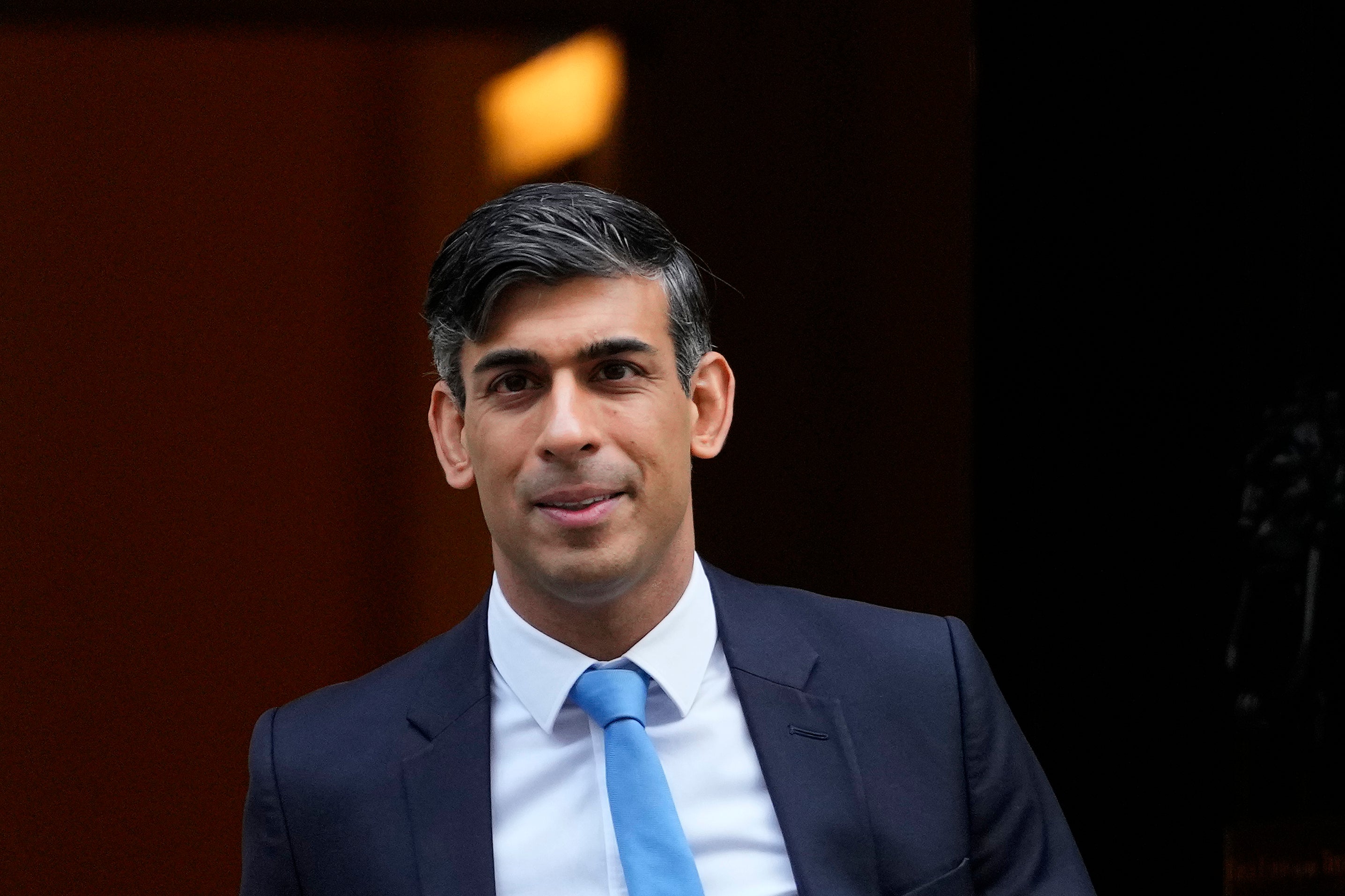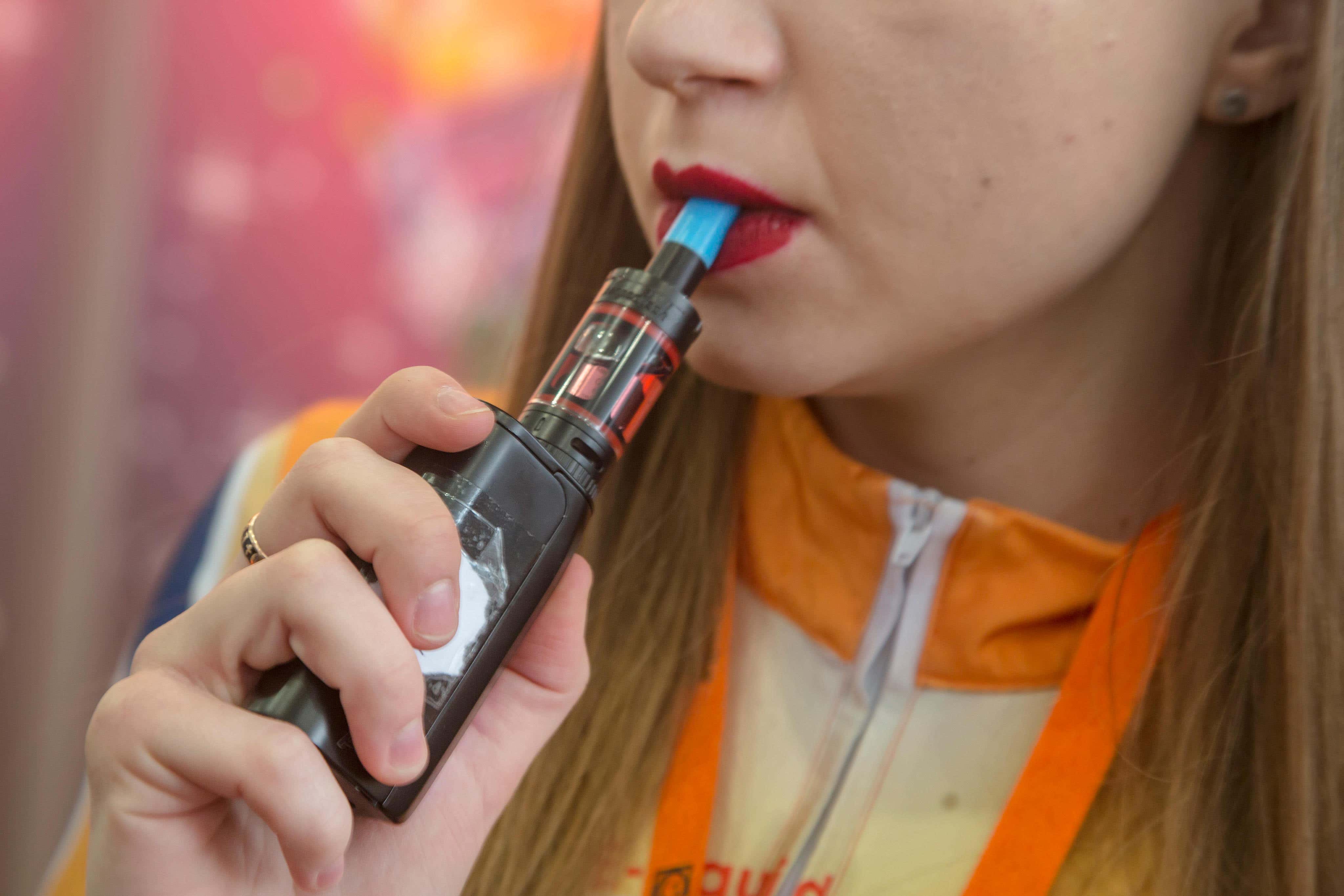Everything we know about the ban on disposable vapes
The ban is expected to come into place at the end of 2024 or start of 2025
Your support helps us to tell the story
From reproductive rights to climate change to Big Tech, The Independent is on the ground when the story is developing. Whether it's investigating the financials of Elon Musk's pro-Trump PAC or producing our latest documentary, 'The A Word', which shines a light on the American women fighting for reproductive rights, we know how important it is to parse out the facts from the messaging.
At such a critical moment in US history, we need reporters on the ground. Your donation allows us to keep sending journalists to speak to both sides of the story.
The Independent is trusted by Americans across the entire political spectrum. And unlike many other quality news outlets, we choose not to lock Americans out of our reporting and analysis with paywalls. We believe quality journalism should be available to everyone, paid for by those who can afford it.
Your support makes all the difference.Disposable vapes are set to be banned in Britain as part of plans to tackle the rise in young people vaping and protect children’s health.
Prime minister Rishi Sunak is set to announce the plan to implement the ban – using powers already in place under the Environmental Protection Act – which is expected to come into force at the end of 2024 or the start of 2025, during a visit to a school on Monday.
It forms part of the Government’s response to its consultation on smoking and vaping, which was launched in October last year.
Why is the ban coming into place?
New data shows the number of children vaping in the last three years has tripled, the Government said, adding that use among younger children is also rising, with 9% of 11 to 15-year-olds now using vapes.
Disposable vapes have been pushing the rise in youth vaping, with the proportion of 11 to 17-year-old vapers using disposables increasing almost ninefold in the last two years, it added.

Figures from the Action on Smoking and Health (Ash) charity suggest 7.6% of 11 to 17-year-olds now vape regularly or occasionally, up from 4.1% in 2020.
Child-friendly flavours such as those inspired by energy drinks and cookies are believed to be fuelling their increase in popularity among the younger generation.
What will the ban include?
New powers will also be introduced to restrict flavours which are specifically marketed at children and ensure that manufacturers produce plainer packaging and change how vapes are displayed in shops, moving them out of children’s sight.
New £100 fines will also be brought in for shops in England and Wales which sell vapes illegally to children.
Trading standards officers will be given powers to act “on the spot” to tackle underage tobacco and vape sales. This builds on a maximum £2,500 fine that local authorities can already impose.
Vaping alternatives – such as nicotine pouches – will also be banned for children.
What has the government said?
Prime Minister Rishi Sunak said: “As any parent or teacher knows, one of the most worrying trends at the moment is the rise in vaping among children, and so we must act before it becomes endemic.
“The long-term impacts of vaping are unknown and the nicotine within them can be highly addictive, so while vaping can be a useful tool to help smokers quit, marketing vapes to children is not acceptable.

“As Prime Minister I have an obligation to do what I think is the right thing for our country in the long term. That is why I am taking bold action to ban disposable vapes – which have driven the rise in youth vaping – and bring forward new powers to restrict vape flavours, introduce plain packaging and change how vapes are displayed in shops.
“Alongside our commitment to stop children who turn 15 this year or younger from ever legally being sold cigarettes, these changes will leave a lasting legacy by protecting our children’s health for the long term.”
The UK Government, along with the Welsh and Scottish governments, intend to introduce legislation to ban disposable vapes due to their significant environmental impacts, according to the Welsh Government. This includes both nicotine and non-nicotine products.
Northern Ireland’s Department of Health noted the UK Government’s plans and said: “The department will make the necessary preparations to allow incoming ministers and the NI Assembly to take a decision on introducing the regulations in Northern Ireland.”
Under the Tobacco and Vapes Bill, the Government plans to introduce legislation so children turning 15 this year or younger can never legally be sold tobacco – to bring about the “first smokefree generation”.

Some £30 million new funding a year will be provided to bolster enforcement agencies – including Border Force, HM Revenue and Customs (HMRC) and Trading Standards – to implement these measures.
Health Secretary Victoria Atkins said: “Smoking is still the single largest preventable cause of death in England. Almost every minute of every day someone is admitted to hospital with a smoking-related disease. And it costs society £17 billion each year – putting a huge burden on our NHS.
“That’s why we are driving the way forward through our smokefree generation plan, which will prevent our children from starting this dangerous habit.
“The health advice is clear, vapes should only ever be used as a tool to quit smoking. But we are committed to doing more to protect our children from illicit underage vaping, and by banning disposable vapes we’re preventing children from becoming hooked for life.”
Vapes should only be used by adults as a tool to quit smoking and they contribute to an extra 50,000-70,000 smoking quits a year in England, the Government said.
As part of the Government’s Swap to Stop scheme, almost one in five of all adult smokers in England will have access to a vape kit alongside behavioural support to help them quit the habit.
Chief medical officer Professor Sir Chris Whitty said: “If passed, this legislation would have a major public health impact across many future generations.”

The ban also aims to have a positive impact on the environment as five million disposable vapes are thrown away each week, up from 1.3 million from last year.
Environment Secretary Steve Barclay said: “Not only are disposable vapes often targeted, unacceptably, at children – they also represent a huge and growing stream of hard-to-recycle waste, with nearly five million thrown away every week.
“This historic announcement will be a powerful tool in support of our efforts to crack down on waste and boost recycling, as well as helping to create the first smokefree generation.”
HMRC estimates that the illicit tobacco trade costs the UK economy around £2.8 billion a year in lost revenue – money that should fund public services.
On Monday, HMRC and Border Force will publish a new illicit tobacco strategy – Stubbing Out the Problem – setting out how it will aim to reduce the trade in illicit tobacco and tackle and disrupt organised crime behind the illicit tobacco trade.
The Labour Party has said it will support the disposable vapes ban and “ensure these important measures to protect children’s health are brought in” but criticised the length of time it has taken.
Shadow health secretary Wes Streeting said: “What has taken the Government so long? Labour put forward measures to tackle vapes being aimed at children more than two years ago but these were blocked by the Conservatives. In the meantime, the numbers of young people vaping have soared.
“Labour will not sit back and allow a new generation of kids to get hooked on nicotine. Of course we will support this ban on disposable vapes.”




Join our commenting forum
Join thought-provoking conversations, follow other Independent readers and see their replies
Comments